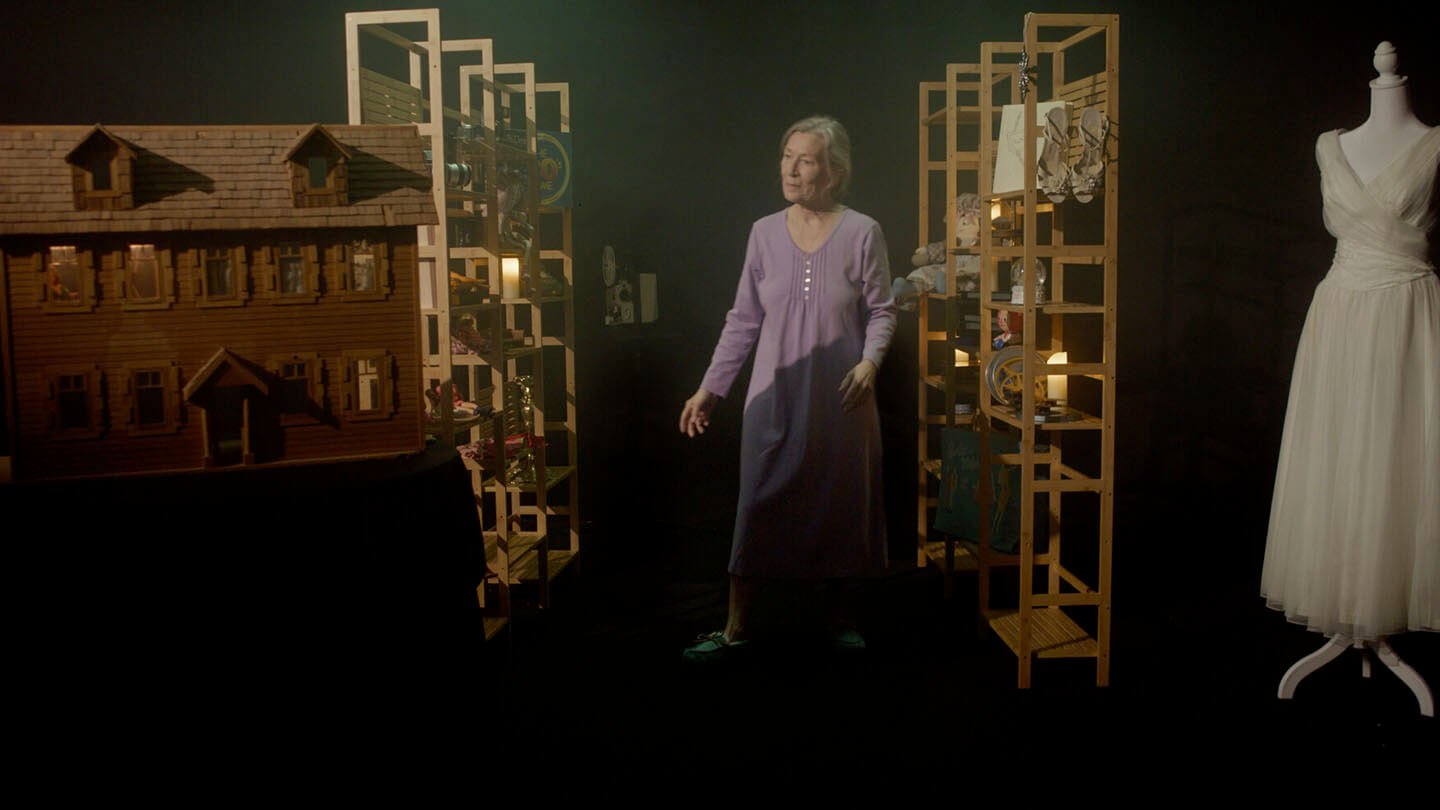Chris Esper’s 10-minute Distant Memories is a drama of memories examining the experience of losing them, and through it, losing the feeling of loving and being loved. The first words of the protagonist—an elderly lady grappling with Alzheimer’s—in the present are that she does not have any children.
Of course, Anna (Sissy O’Hara) says this to Noelle (Christie Devine), her daughter who has been living with and caring for her. It gives real poignancy to the exchange heard earlier on the voiceover: Noelle is mourning a mother who is still alive.
Preceding these, the opening offers up a mere glimpse of Anna’s own despair as she wanders about, lost, within her memories as well as her grasp on reality. It is not so much a palace of memories as a storeroom. Shelves are lined with the markers of a richly lived life. Books, photographs, toys, home videos, her wedding dress, all sorts of odds and ends. A series of actors portray Anna and her family through the years. Viewed through the grain of VHS, the memories evoke the substance and sense of a personal history.
Clearly none of it is discarded history either, but stored, and indefinitely. Anna can only access them in the shadowy recesses, and then only randomly, with no logic to the organisation. The wedding dress remains visible in the background for a long time as the chief milestone atop which she built her adult life, peopled with loving family and friends.
In her memory warehouse, she is alone. Heartbreakingly, when she picks up the phone, the notes of a lively conversation reach her, and yet, try as she might, no one can hear her. The past does not remember to listen for her. In her turn, the present is the pale impression of a window for Anna. And in the present, where the film shows a relatively more objective vision of the woman, struggling to remember a recipe, the tonal shift is palpable. A distance makes itself felt. We no longer share her view of the world as strongly. We view her, instead. An ailing old woman, someone’s responsibility, a life near its end. Which makes the film as much about dementia as about the ubiquitous obsolescence of the aged to the world around them.
Distant Memories successfully illustrates this difference as well as it mourns love’s loss. Its final shot as the end credits roll is of Anna dancing with her late husband. There, she is still a person. Experiencing the thrill of romance, the younger Anna is someone we are habituated to feel with. How curious then to see her (only) as a patient in hospice, to feel pity, to feel ourselves closer to a grieving Noelle. How strange to find how easy it is to forget to listen for someone.
Watch Distant Memories Short Film Trailer
Distant Memories: Grief and Despair as Life Separates Itself from the Still Living
-
Direction
-
Cinematography
-
Screenplay
-
Editing
